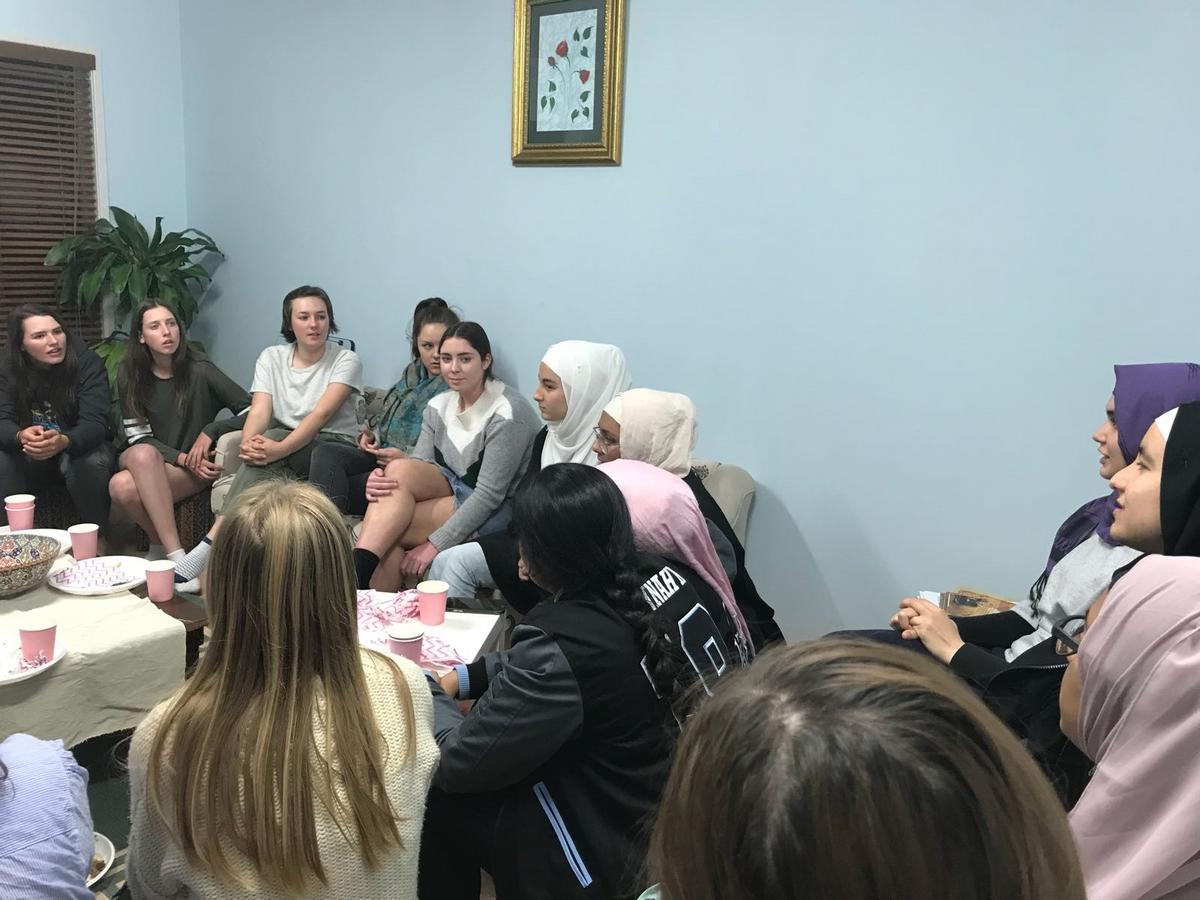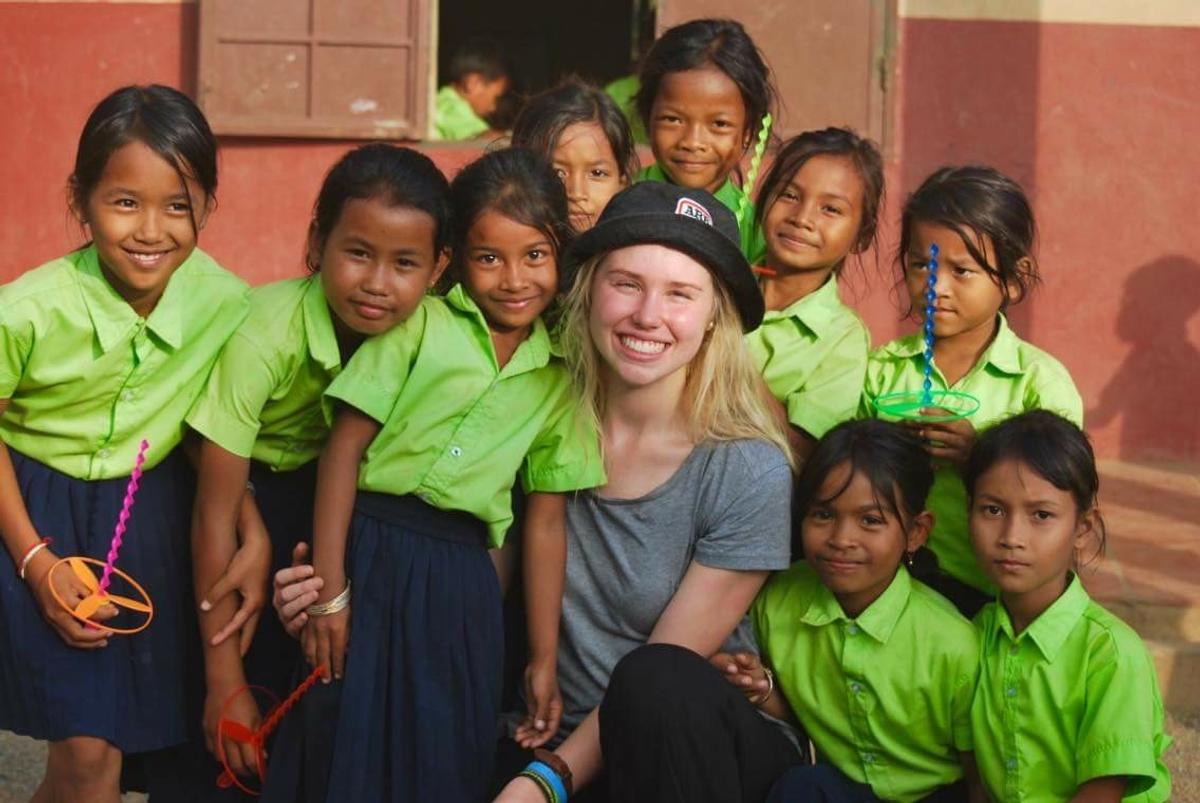A Message from
the Chaplain

A Message from
the Chaplain
Typically this is time marked by rest from the daily grind and an abundance of chocolate. Sometimes Jesus is thought about. Even less commonly, the meaning of Jesus death and resurrection is thought about. This isn’t a criticism but an observation in my own home.
In preparation for Easter, I asked myself; “self, there are multiple layers of meaning to why Jesus died on the cross. What was at the core of his life that was worth dying for?”
To answer my own question, I stripped away the theology of redemption, of justification and of salvation… all those theologies that Jesus would hear and say “Say what?” and exposed well quoted words of Jesus. The teachers of the law asked Jesus; “Which is the greatest commandment in the Law?” and Jesus answered, ‘Love the Lord your God with all your heart, with all your soul, and with all your mind.’ This is the greatest and the most important commandment. The second most important commandment is like it: ‘Love your neighbour as you love yourself.’
This is what we now call the Great Commandment. Did you know that Love the Lord your God with all your heart, with all your soul, and with all your mind’ is actually Jewish sacred text from the Torah? (Well, almost. Jesus used the word “mind” rather than “strength”. I’ve have to research why.)
What’s more, this extract from Deuteronomy is prayed by the Jews every morning and every evening as a devotion of God: ‘Hear O Israel, you shall love the Lord you God with all your heart, with all your soul and with all your strength.’ They continue to do so to this very day. In Hebrew, it is called the SHEMA. Jesus added to the Shema prayer “the second which is like it”; ‘love your neighbour as yourself’.
This Great Commandment is the very core of Jesus’ teaching. So let’s explore this commandment by beginning with this thing called ‘love’.
We’re called to love our God. But what does it mean to love? Love is a common word in many languages. In the Shema, the word used for this ‘love’ is AHAVAH, pronounced a-ha-vah. It refers to the kind of affection or care that one person shows another. Ahavah does not typically refer to sexual activity, they have a different word for that. Ahavah is paternal love (Abraham for Isaac) and brotherly love (Jonathan for David). It can be the love of a people for their leader (Israelites for King David). It is a love that is given freely. It is not earned. Not surprisingly then, ahavah is used to describe God’s love for his people.
In the book of Deuteronomy, Moses told the Israelites: “God showed affection for you. He chose you… because of his ahavah for you.” (7:7-8). God doesn’t love because love is earned. God loves because it simply emanates from God’s very being. It is God’s attribute, his character, to love. As stated in 1 John 4:7 “God is love.”
Now, significantly, ahavah is a verb. Love is something God does rather than just feels. This is why Moses says: “Because of his ahavah for your ancestors the LORD brought you out of Egypt with great power” (Deut 4:37). It’s something God does from love.
Just like God’s love, human love is meant to be lived in action. Simply put, if I’m not doing love, then I’m not loving God, I’m only saying that I love God. Jesus issues a warning to such people: “Not everyone who calls me ‘Lord, Lord’ will enter the Kingdom of heaven, but only those who do what my Father in heaven wants them to do.” (Matt 7: 21).
So when Jesus instructed people to ahavah, it is explicitly about action. Hence the inclusion of the second part to the Greatest Law of God: “You shall halavah your neighbour as yourself.” In other words, we show our love for God in the way we treat others around us.
Jesus lived God’s ahavah for all to hear it and see it as the Way of God. Jesus reached out to this neighbour irrespective of ethnicity or religious affiliation or gender or health. Ahavah does not discriminate.
For us, as Easter people, it is good to remember that ahavah is a calling to action. Visiting the elderly, interfaith dialogue and fundraising for CamKids are all expressions of ahavah. However, the greater challenge is living ahavah in the ordinariness of daily living.






Have a blessed Easter Season.
Phil Worrad
Chaplain